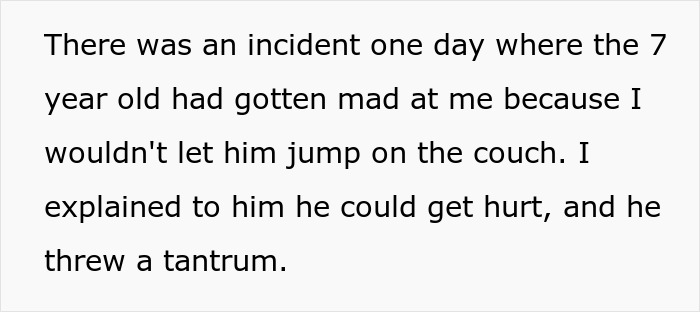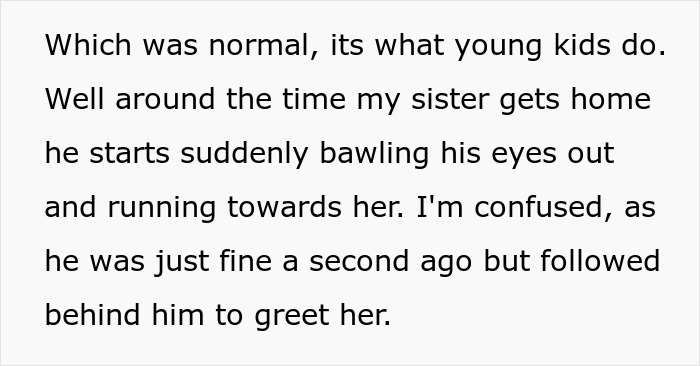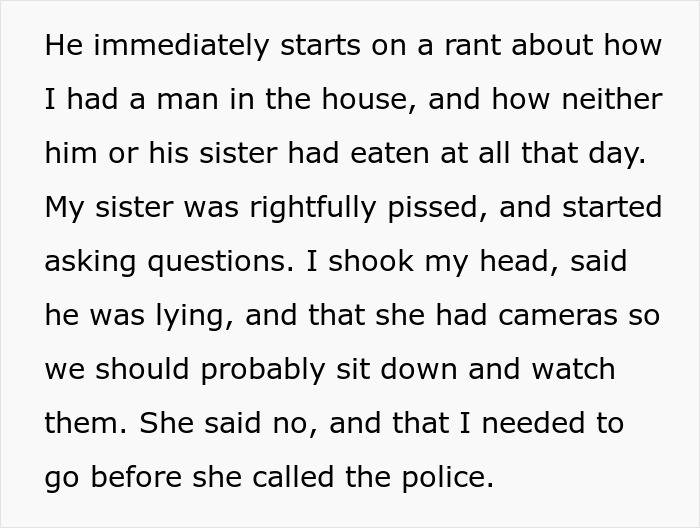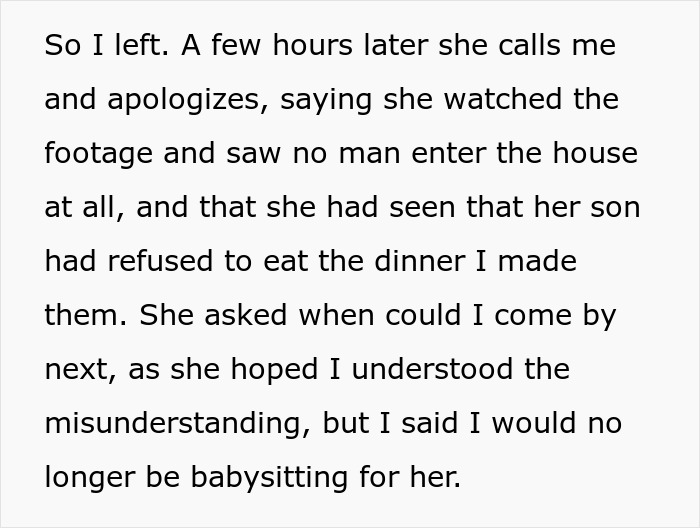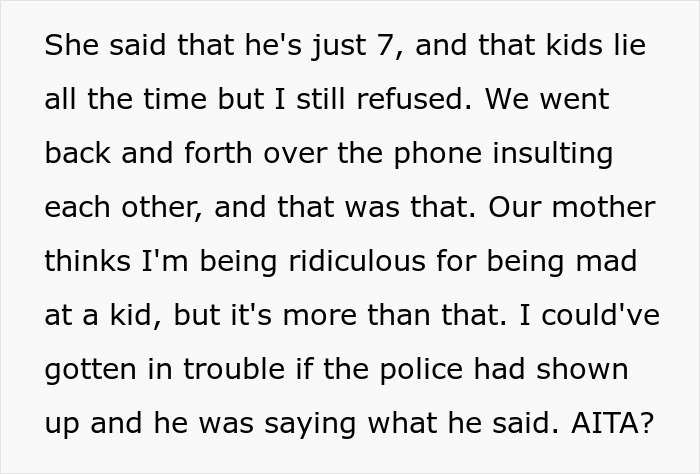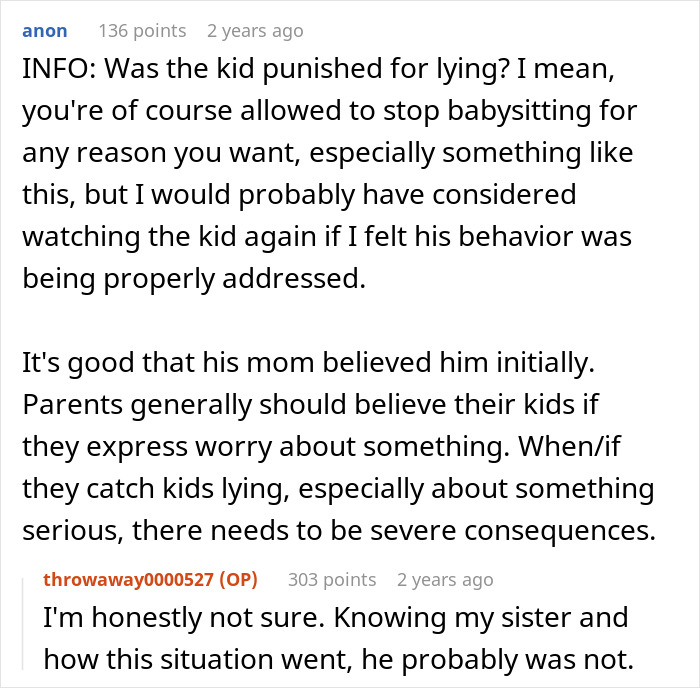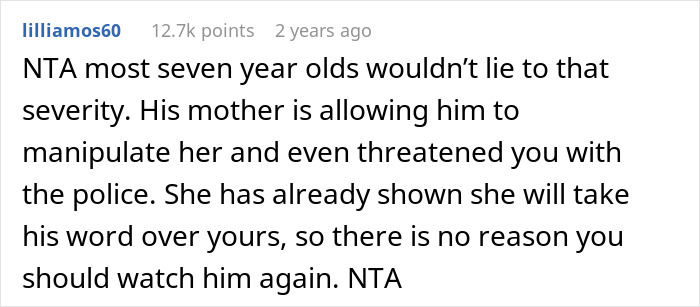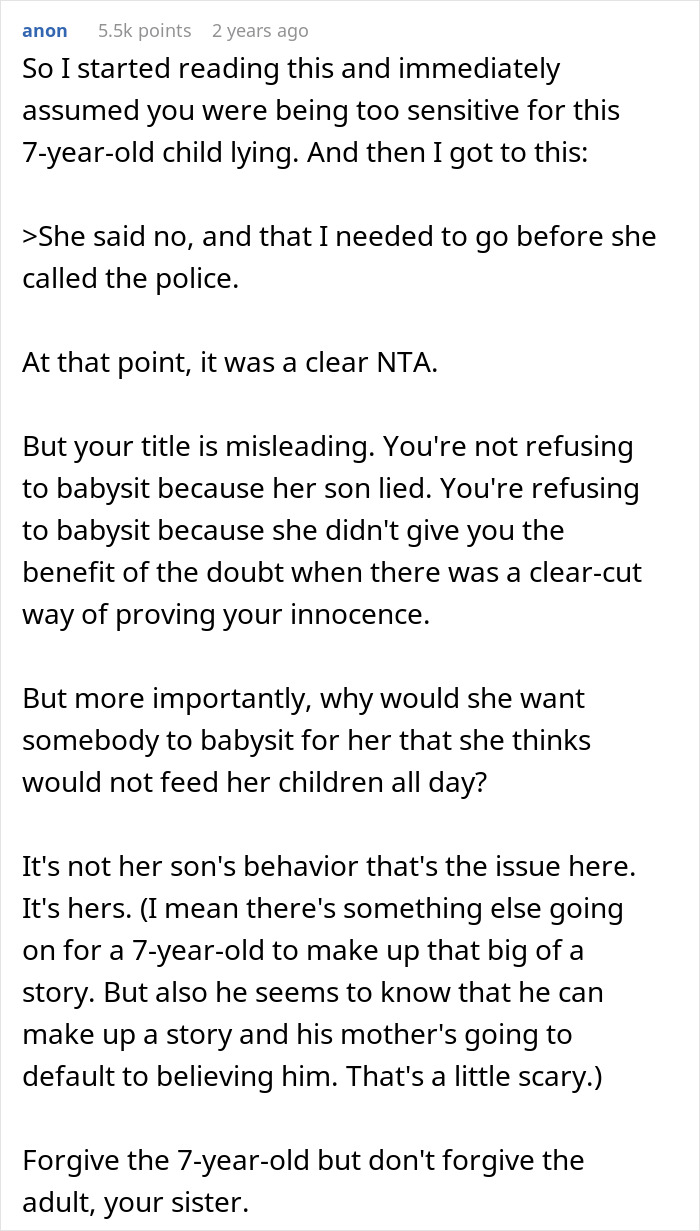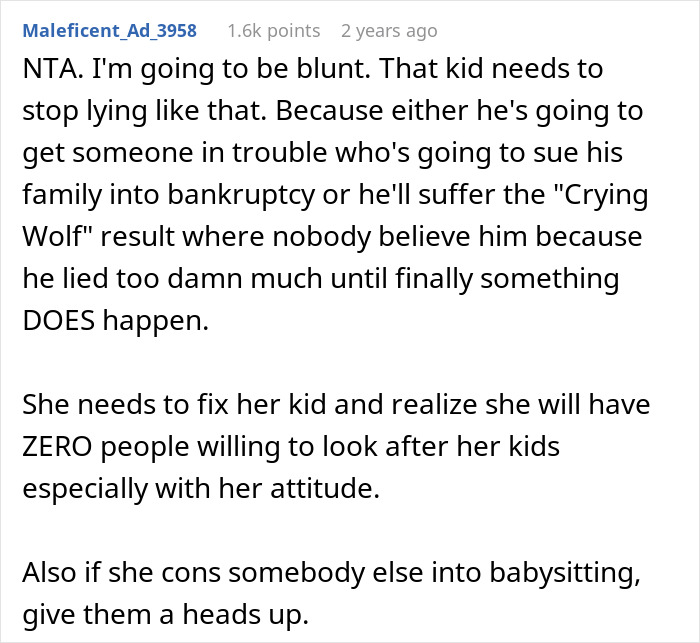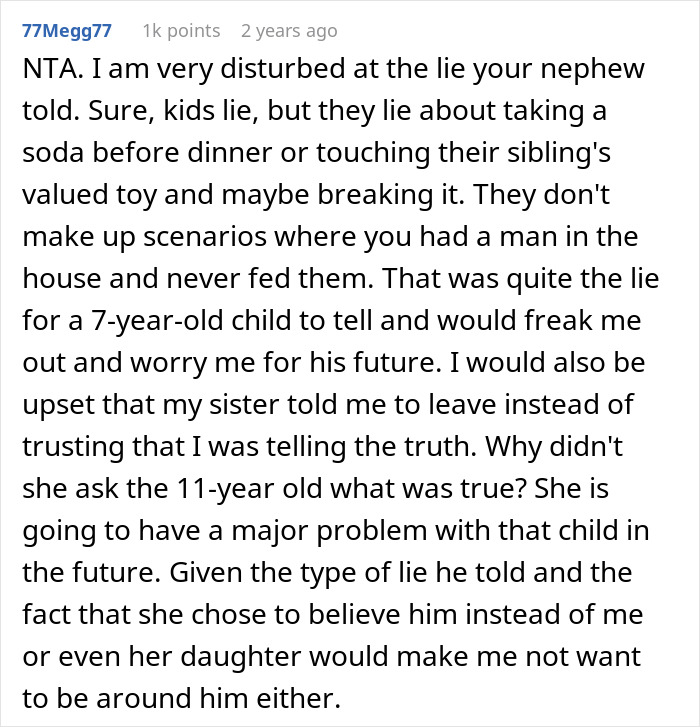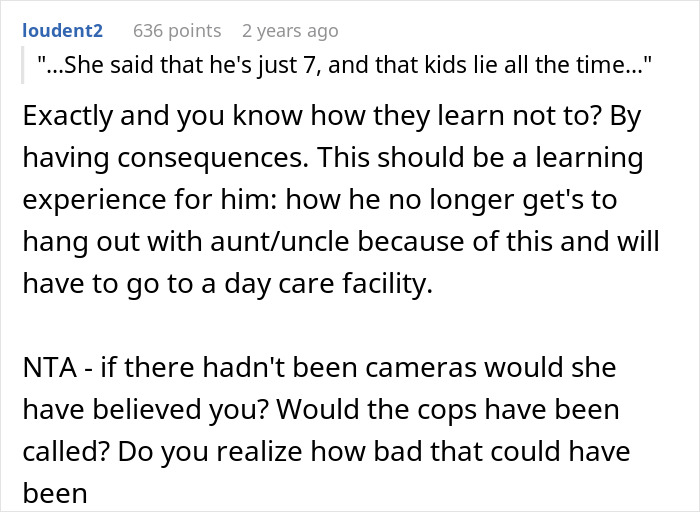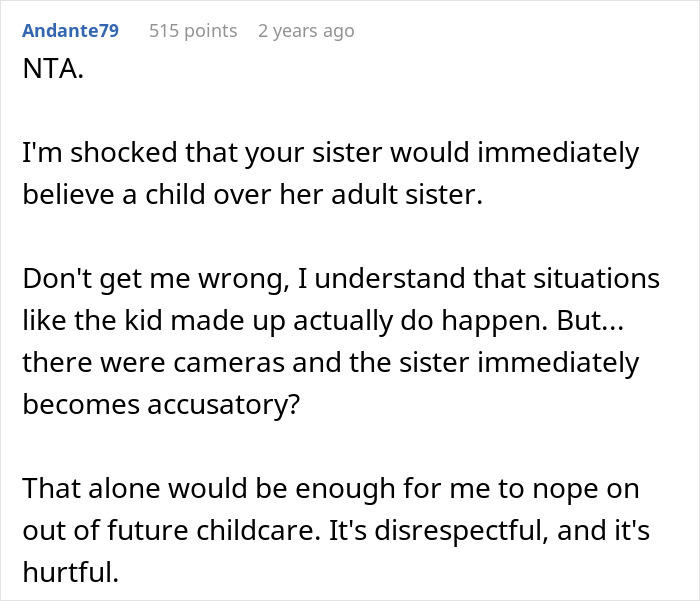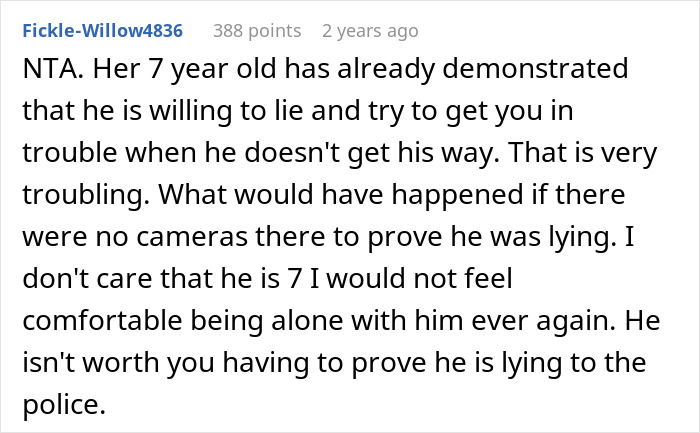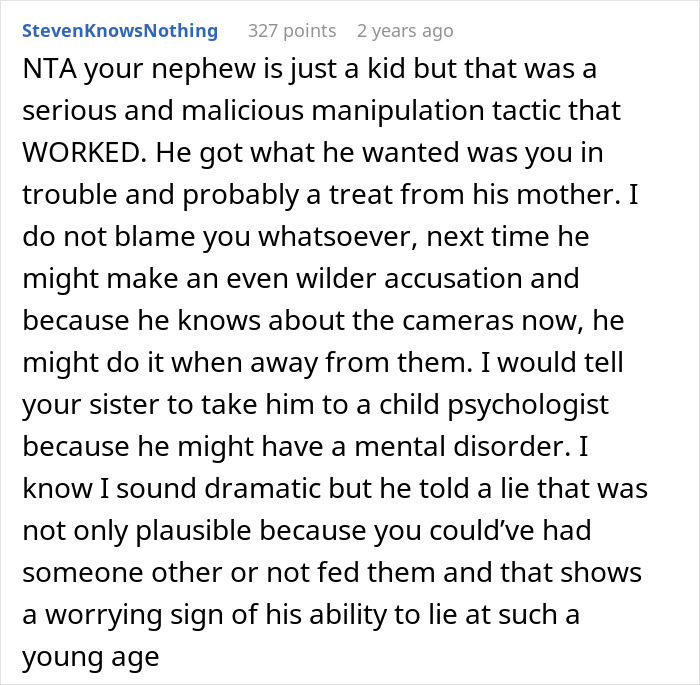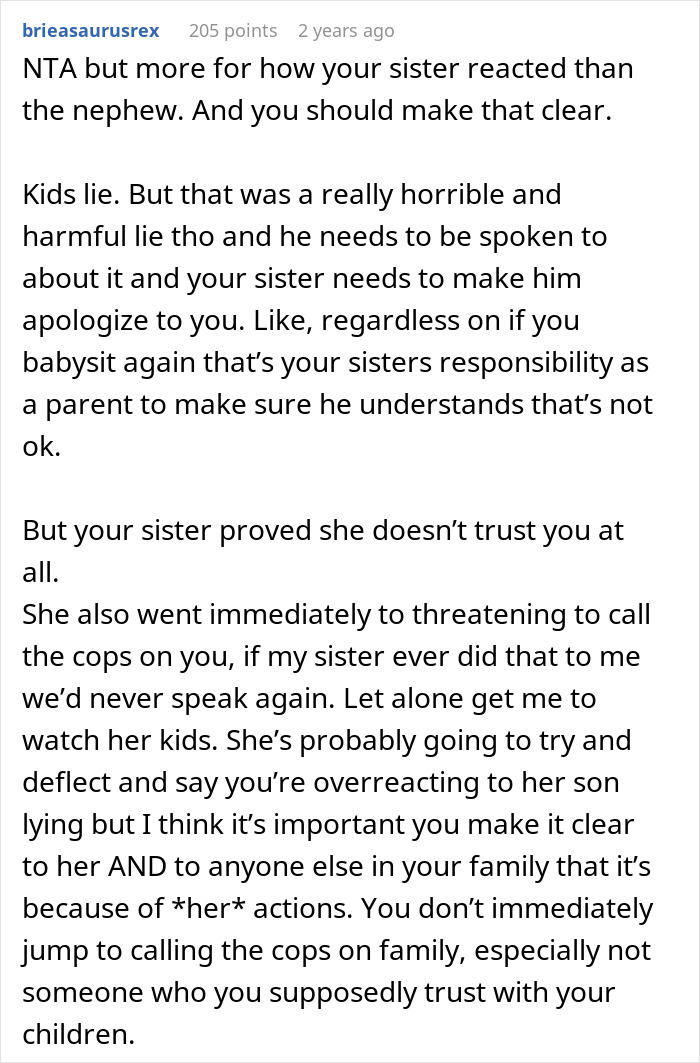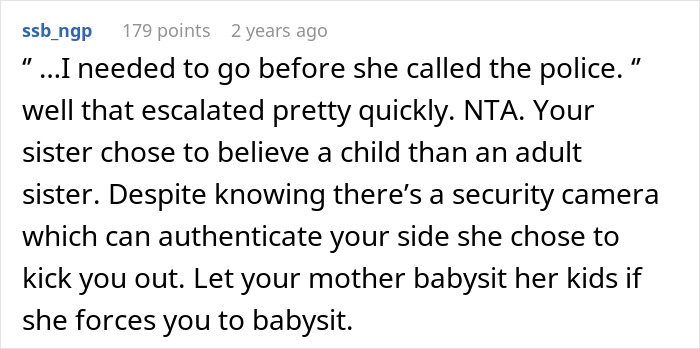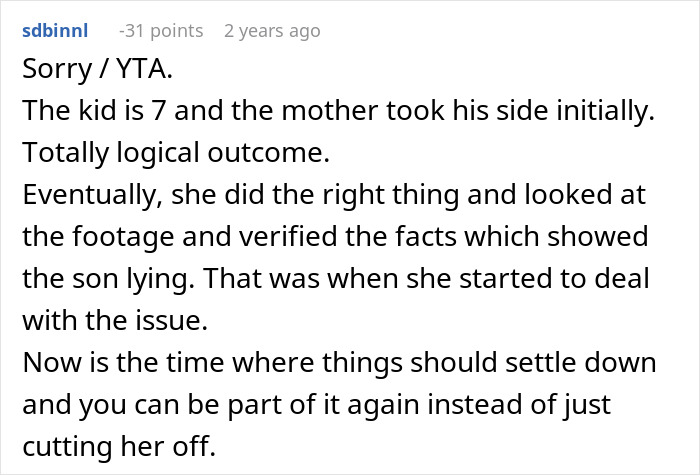The author of this story experienced this when their young nephew spread lies about them to get out of trouble. However, the mother sided with her child and made excuses to condone his behavior. The upsetting situation made the author no longer want to babysit their sister’s children, which worsened things. Wanting clarity, they are now asking the AITA subreddit if they did anything wrong.
Some parents tend to condone their children’s dishonesty
Share icon Image credits: Luke Pennystan/Unsplash (not the actual photo)
The author of this story nearly got in trouble with the police after their young nephew spread lies about them
Share icon Image credits: Liza Summer/Pexels (not the actual photo)
However, the child’s mother dismissed it as typical mischievous behavior
Some children lie to get the focus off themselves
Share icon Image credits: Kaboompics.com/Pexels (not the actual photo) The nephew’s actions may be typical for a seven-year-old. According to clinical psychologist Dr. Matthew Rouse, some kids may do it to deflect the focus that an adult puts on them. In this story’s case, it’s the potential trouble he was in for disobeying an adult. In a conversation with the Child Mind Institute, Dr. Rouse says it’s a way for a child to downplay the issue or see what happens if they twist the truth. “They’ll wonder, what happens if I lie about this situation? What will it do for me? What does it get me out of? What does it get me?” Dr. Rouse explained. Dr. Rouse introduced three levels of lying, depending on the severity. A “Level 1 lie” is more about seeking attention, while a “Level 2 lie” is more elaborate and more popularly known as a “tall tale.” A “Level 3 lie” is when a child says something untrue to get out of trouble, as the nephew did. At this age, the child also begins to realize the intention of telling a lie. As developmental psychology educator Dr. Victoria Talwar explains, this is when they are first introduced to deception. “They’re intending to make a false statement, to make someone else believe something that’s not true,” Dr. Talwar stated in an interview with the American Psychological Association, adding that kids begin to carry this mindset as they grow older.
Parents must educate their children about the consequences of lying
Share icon Image credits: Monstera Production/Pexels (not the actual photo) Dr. Rouse and Dr. Talwar agree that parents should make their children realize the consequences of lying. In the case of a Level 3 lie, Dr. Rouse urges that the consequences be “short-lived, not overblown.” The goal is not to discourage the child from doing better next time. At the same time, a child must also feel that telling the truth reduces the severity of the consequences. As Dr. Rouse explains, parents must strike the “hard balance” between having an open dialogue and setting the appropriate limits. For Dr. Talwar, it is necessary to drive the point home. She believes that actively teaching a child about honesty is to stress its importance. Parents should also start at a young age by reading stories to make the concept more understandable. “Just thinking that they’ll pick it up by osmosis is not the way to go,” she said. What parents shouldn’t do is condone dishonesty, as the child can carry it through adulthood. It was wrong for the mother to dismiss her son’s behavior the way she did, and it would’ve been much worse if she did not impose consequences. The author’s apprehensions are understandable. They had good reason to refuse to babysit, especially since their nephew almost got them in trouble. What do you think, readers? Was the author out of line for refusing to babysit in the future?
The author answered some reader questions to provide more information
Share icon Share icon
Most commenters saw no wrong in the author’s decision to distance themselves from the children
Share icon Share icon Share icon Share icon Share icon Share icon Share icon Share icon Share icon Share icon Share icon Share icon
But some people saw it differently, accusing the author of “being petty”
Share icon Share icon Share icon Share icon Anyone can write on Bored Panda. Start writing! Follow Bored Panda on Google News! Follow us on Flipboard.com/@boredpanda!


